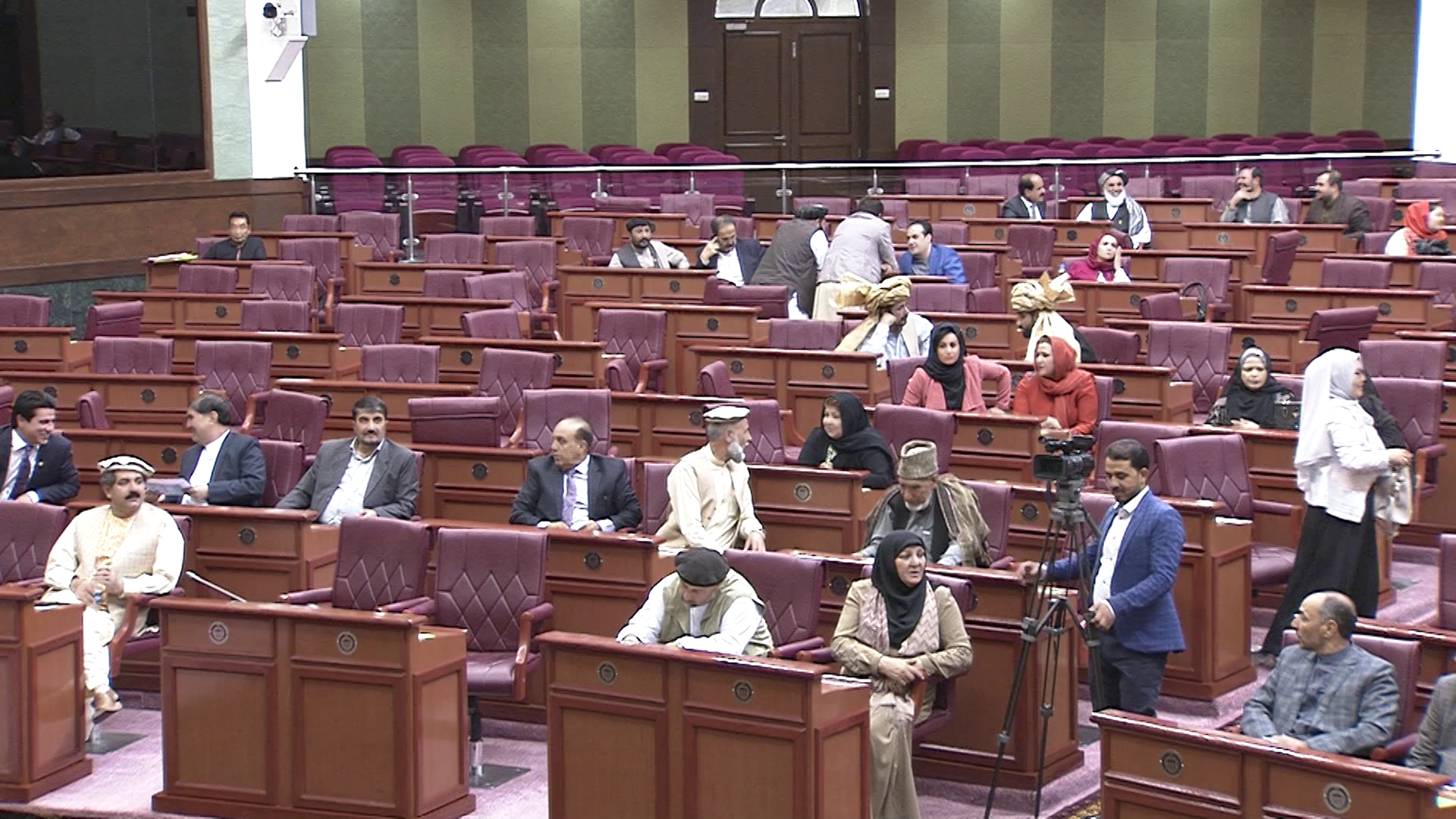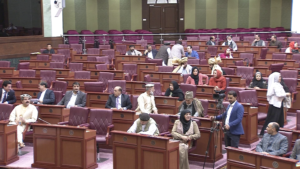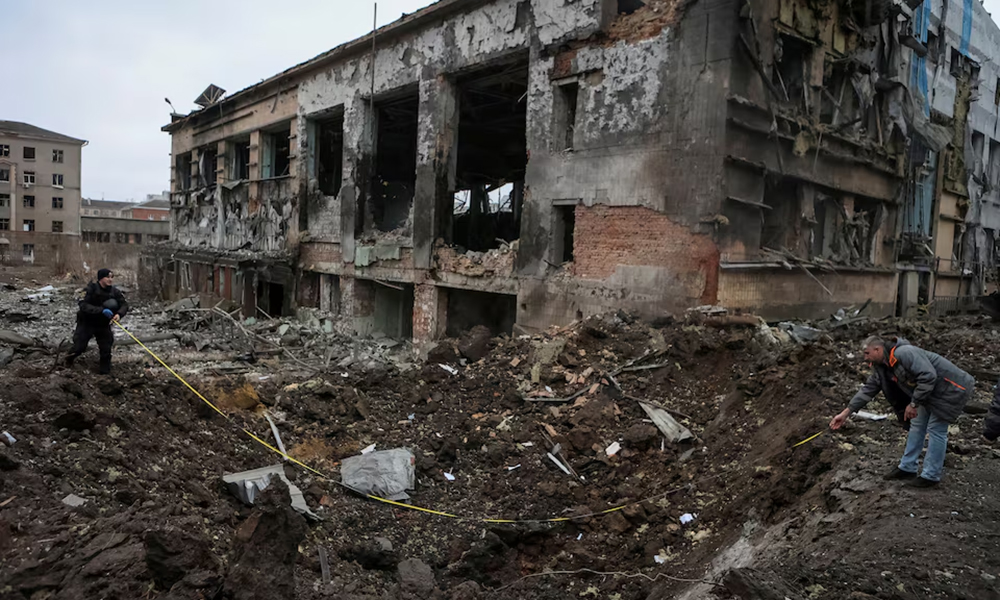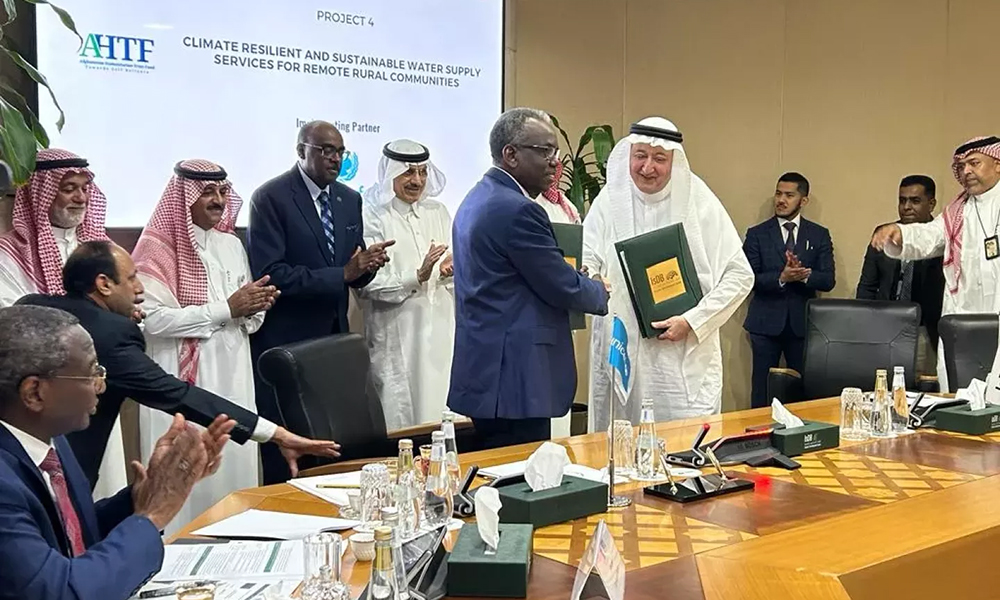Latest News
MPs Demand Summoning Security Officials to Parliament

 Afghan Parliament Members have called for a commons vote on summoning security officials for accountability, saying security forces do not have the capability to provide the security of people.
Afghan Parliament Members have called for a commons vote on summoning security officials for accountability, saying security forces do not have the capability to provide the security of people.
The lawmakers accused security officials of incompetence and emphasized that more than 40 thousand people were killed or wounded since the formation of the National Unity Government (NUG).
“Government is responsible for every drop of the people’s blood. The government should response why they cannot provide the security of people?” Ghulam Hussain Naseri, representative of Maidan Wardak said.
The representative of Kandahar, Muhammad Naeem Lalay Hamid Zai also said, “The agenda should be on security. At least twelve terrorist attacks were carried out just in one specific area of Kabul.”
In the meantime, MPs called for disqualifying the security officials after summoning them to Parliament.
“The National Unity Government fails to provide security. This government has become a cancer of the people. The security officials should be disqualified without any question and declaration,” MP Abdul Rahim Ayoubi asserted.
Jafar Mahdawi, representative of Kabul also warned that the people would take their security themselves if the government cannot provide the security.
This comes as the senior security officials will be summoned in the upcoming sessions by the Lower House internal security and defense affairs commission.
“We demand the Parliament’s security commission to summon the security officials to report about the recent bloody incidents that the lawmakers can decide over them,” Abdul Rauf Ibrahimi, the chairman of the Parliament added.
In the latest attack, at least 26 civilians, including several sportsmen and two journalists, were killed and 95 others wounded after a suicide bomb blast targeted a sports gym in Dasht-i-Barchi neighborhood western of Kabul on Wednesday evening.

Latest News
UN experts say North Korea missile landed in Ukraine’s Kharkiv

The debris from a missile that landed in the Ukrainian city of Kharkiv on Jan. 2 was from a North Korean Hwasong-11 series ballistic missile, United Nations sanctions monitors told a Security Council committee in a report seen by Reuters on Monday.
In the 32-page report, the U.N. sanctions monitors concluded that “debris recovered from a missile that landed in Kharkiv, Ukraine, on 2 January 2024 derives from a DPRK Hwasong-11 series missile” and is in violation of the arms embargo on North Korea.
Formally known as the Democratic People’s Republic of Korea (DPRK), North Korea has been under U.N. sanctions for its ballistic missile and nuclear programs since 2006, and those measures have been strengthened over the years.
Three sanctions monitors traveled to Ukraine earlier this month to inspect the debris and found no evidence that the missile was made by Russia. They “could not independently identify from where the missile was launched, nor by whom.”
“Information on the trajectory provided by Ukrainian authorities indicates it was launched within the territory of the Russian Federation,” they wrote in an April 25 report to the Security Council’s North Korea sanctions committee.
“Such a location, if the missile was under control of Russian forces, would probably indicate procurement by nationals of the Russian Federation,” they said, adding that this would be a violation of the arms embargo imposed on North Korea in 2006.
The Russian and North Korean missions to the United Nations in New York did not immediately respond to a request for comment on the report by the sanctions monitors, Reuters reported.
The U.S. and others have accused North Korea of transferring weapons to Russia for use against Ukraine, which it invaded in February 2022. Both Moscow and Pyongyang have denied the accusations, but vowed last year to deepen military relations.
At a U.N. Security Council meeting in February, the U.S. accused Russia of launching DPRK-supplied ballistic missiles against Ukraine on at least nine occasions.
The U.N. monitors said the Hwasong-11 series ballistic missiles were first publicly tested by Pyongyang in 2019, Reuters reported.
Russia last month vetoed the annual renewal of the U.N. sanctions monitors – known as a panel of experts – that has for 15 years monitored enforcement of U.N. sanctions on North Korea over its nuclear and ballistic missile programs. The mandate for the current panel of experts will expire on Tuesday.
Within days of the Jan. 2 attack, the Kharkiv region prosecutor’s office showcased fragments of the missile to the media, saying it was different from Russian models and “this may be a missile which was supplied by North Korea.”
Latest News
Minister of mines says minerals must be processed in Afghanistan before exported

Acting Minister of Mines and Petroleum Shehabuddin Delawar has said in a meeting with officials of a Chinese company that the export of raw minerals for processing abroad is no longer allowed.
He said the ministry will work with foreign mining companies as long as they also process the minerals in Afghanistan.
Delawar said this during a meeting with China’s state-owned company MCC Holoda, and Chinese officials from the company contracted to extract copper from Mes Aynak.
The Ministry of Mines and Petroleum said in a statement that MCC Holoda is one of the largest mining and processing companies in China for copper, lead and zinc.
According to the statement, the company has expressed an interest in investing in copper, lead and zinc mines in Afghanistan.
Delawar welcomed their interest and said there are lead and zinc mines in Bamyan, Kandahar and Ghor provinces, and if the company agrees to process minerals inside Afghanistan, the ministry will cooperate with it.
Delawar also discussed the Mes Aynak copper project and called for acceleration of work at the mine.
Latest News
Afghanistan Humanitarian Trust Fund report highlights problems tackled

Mohammad Jamal Alsaati, Special Advisor to IsDB President and IsDB Coordinator for Afghanistan Humanitarian Trust Fund (AHTF), said this week that 14 projects, signed in 2023, have materialized at a total cost of $35.35 million.
He said in a statement issued Sunday that of this, $24.14 was from contributions from AHTF with a further $12.21 million provided by implementing partners and other international organizations.
Alsaati said all the services provided have created job and capacity building opportunities for the people of Afghanistan and that as of March 2024, pledges to the fund totaled almost $35 million, with more funding expected.
Alsaati’s comments were in a statement issued by the Islamic Development Bank, (IsDB), after it released the first comprehensive report on the achievements of the AHTF.
The report highlights the coordinated efforts by the IsDB, its partners, and stakeholders towards “Promoting Self Reliance and Resilience” in Afghanistan.
The AHTF’s mission is to provide initial humanitarian aid but then to prioritize development and self-reliance to move beyond emergency assistance – promoting reconstruction, empowerment and sustainable development.
IsDB President and Group Chairman, Muhammad Al Jasser meanwhile said following the release of the report that after receiving generous contributions, the AHTF “sprung into action, delivering essential aid to Afghanistan’s most vulnerable communities.”
He said the fund was able to tackle food insecurity, offer child nutrition programs, provide healthcare, innovative education, clean water, sanitation and hygiene services.
“Our projects are making a tangible difference on the ground,” Jasser said.
The Secretary General of the Organization of Islamic Cooperation (OIC), Hissein Brahim Taha also reacted to the report and said: “We are very pleased to see several humanitarian and development-focused projects are underway in Afghanistan – driven by the IsDB in collaboration with its regional and global partners.
“But much work still lies ahead, so we look forward to further help and support from our Member States, in addition to continued financial assistance for the AHTF from international aid and relief agencies,” said Taha.
The fund was established at a Council of Foreign Ministers of the OIC on 19th December 2021.
-

 Sport4 days ago
Sport4 days agoAfghanistan beat Iraq 5-3, inch closer to Futsal World Cup berth
-

 Regional5 days ago
Regional5 days agoTurkey accuses U.S. of double standards over Gaza in rights report
-

 Regional4 days ago
Regional4 days agoNew UK sanctions target Iranian drone industry
-

 Latest News4 days ago
Latest News4 days agoEU allocates 17 million euros to support Afghans on the move
-

 Latest News3 days ago
Latest News3 days agoPakistan extends registered Afghan refugees’ stay till June 30
-

 World4 days ago
World4 days agoUS student protests over Gaza intensify despite arrests
-

 Regional3 days ago
Regional3 days agoChina to host Hamas, Fatah for Palestinian unity talks
-

 Sport2 days ago
Sport2 days agoAfghanistan qualify for FIFA Futsal World Cup for first time ever














